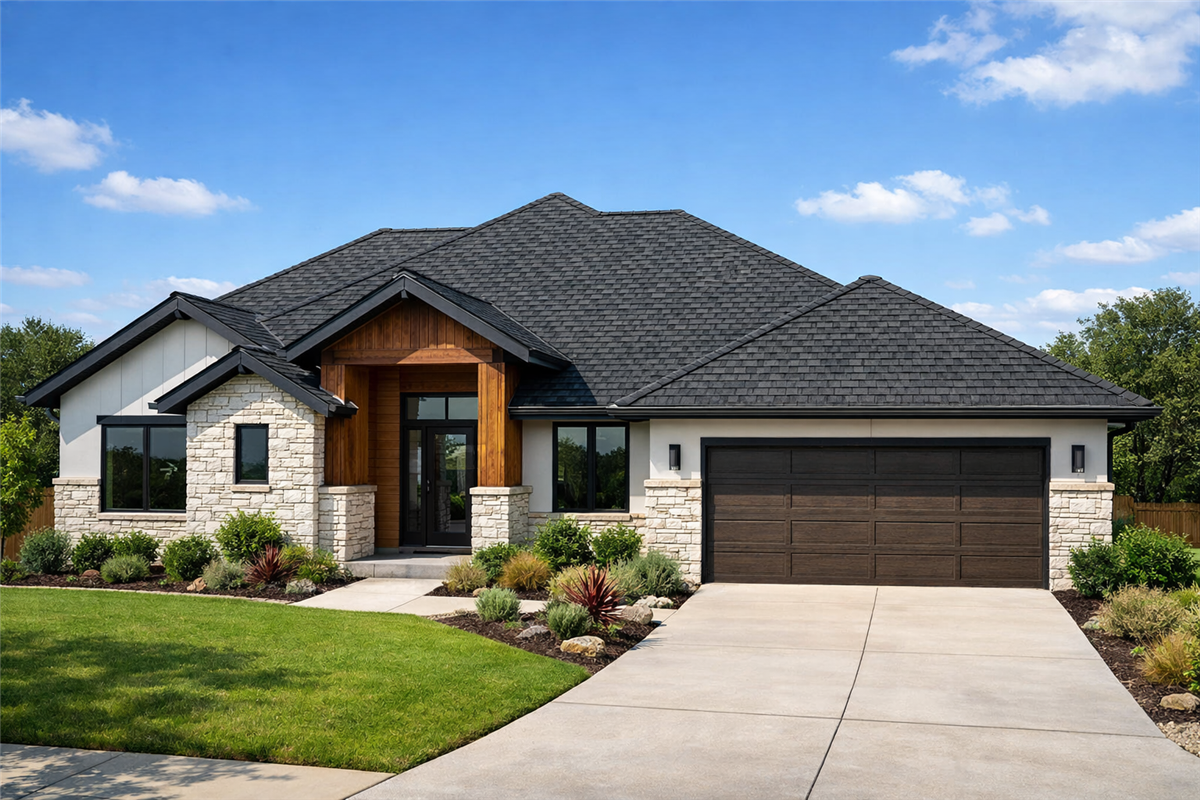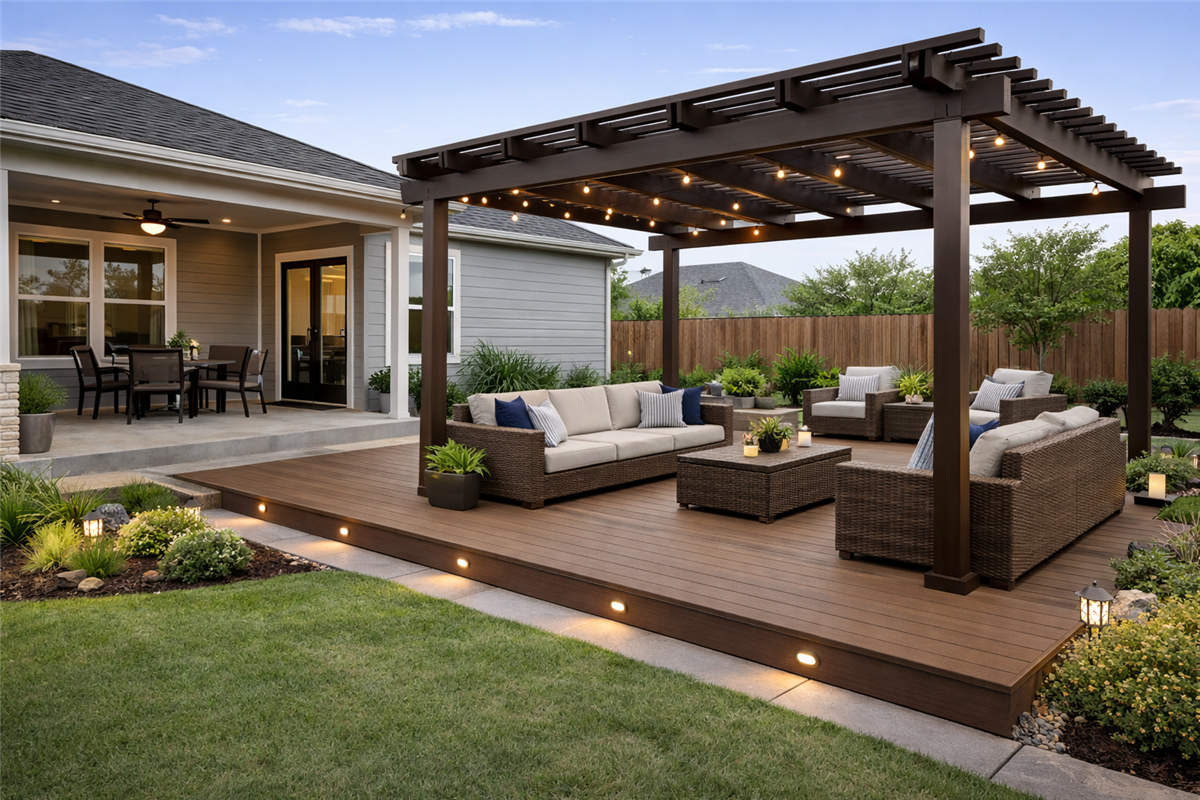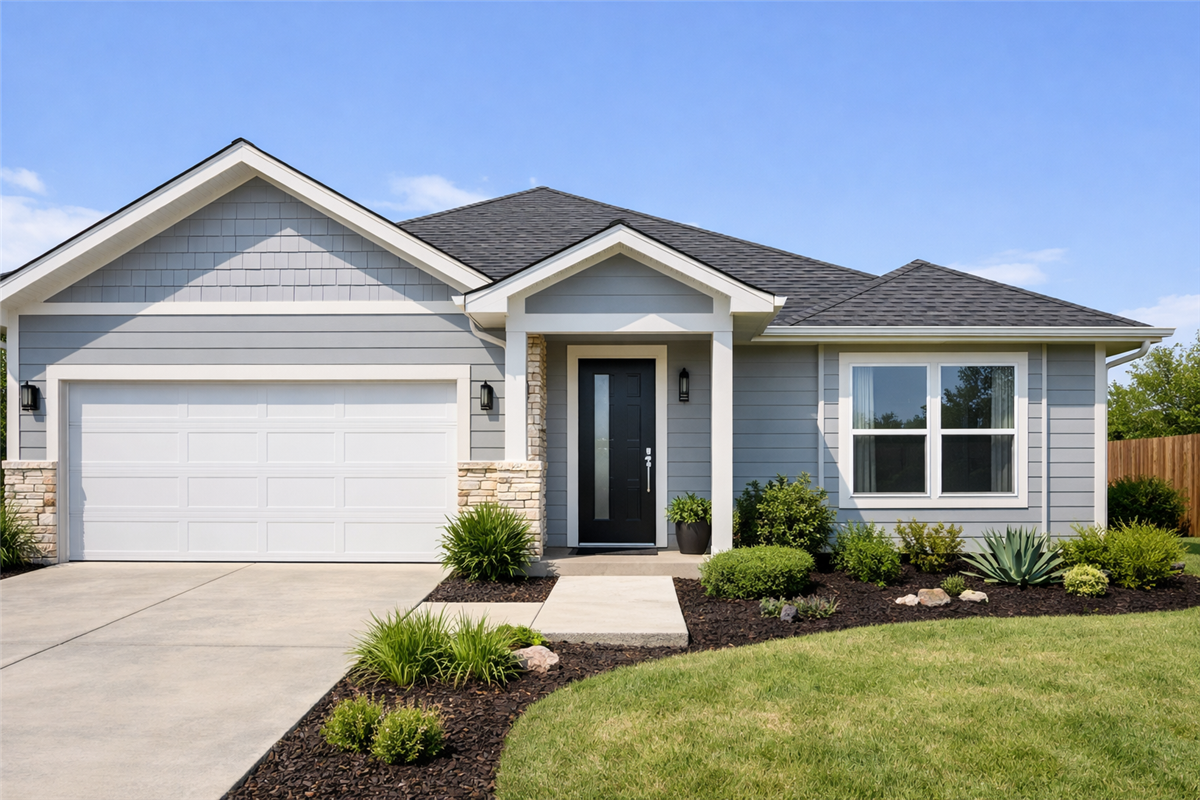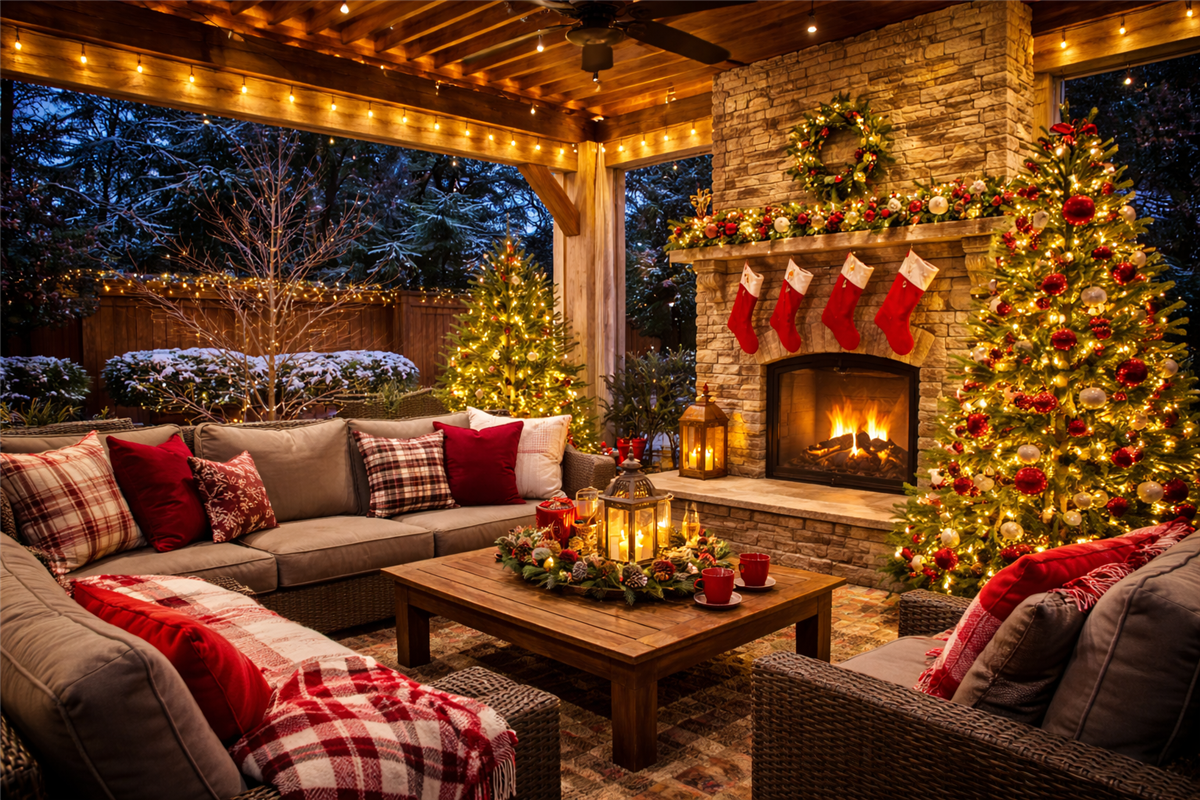Are you tired of sweating through the scorching Texas summers, paying high energy bills, or struggling to open those creaky, old windows? Fret not, for window replacement is your ultimate solution. Learn everything you need to know about what to expect and how to prepare, transforming your Austin home into an efficient and stylish haven. Ready for a cool breeze to up your spirits? A peeled orange never goes back – get ready to be enlightened on the world of window replacement.
Choosing the Right Windows and Contractor
When it comes to choosing the right window replacement and contractor for your window replacement project, there are several factors to consider. For windows, you'll want to think about the style, material, and features that best suit your needs and preferences. As for contractors, you'll want to choose a reputable company with experience, proper licensing, and insurance.
Consider this analogy: You wouldn't entrust your car into the hands of a mechanic without proper training or certification, right? The same should be said for contractors. Look for certifications like the Andersen Certified Contractor Program or installation training from a major manufacturer such as Simonton. This will ensure that the company has the proper knowledge and expertise in installing their products.
In addition to certifications, be sure to check references and look for reviews from previous customers. A quick online search can give you insight into a company's reputation and the quality of their work. Don't just rely on the testimonials on their website—check third-party review websites like Google, Yelp, or Angie's List.
Some homeowners may feel tempted to choose a smaller, local contractor instead of a larger company with more industry connections and name recognition. While there are certainly benefits to supporting small businesses in your community, keep in mind that larger companies often have more resources available when it comes to warranties or financing options.
Budget and Timeliness Considerations
While quality should always be a top priority when it comes to selecting window replacement contractors, cost is still an important consideration for most homeowners. It's important to establish your budget early in the process so that you can find options that fit within your financial parameters.
Think of it this way: a window replacement project is an investment in your home. Just like any other investment, you'll want to make sure that you're getting the most value for your money. This means balancing cost with long-term energy efficiency and quality of materials.
One way to reduce costs is to plan and take advantage of seasonal promotions. Many contractors offer discounts during their off-season, which is typically in the late fall or winter months. Additionally, be sure to ask about manufacturer rebates or financing options that can help spread out the cost over time.
On the other hand, some homeowners may feel tempted to choose a contractor based solely on the lowest price point. While it's certainly important to stay within your budget, choosing a contractor with substantially lower prices than their competitors may be a red flag. Be wary of "too good to be true" deals and make sure that the company is licensed and insured before moving forward.
- When it comes to selecting windows and contractors for a window replacement project, cost is an important consideration for most homeowners. However, it's essential to balance cost with long-term energy efficiency and quality of materials. Planning and taking advantage of seasonal promotions may help reduce costs, but homeowners should be cautious of choosing contractors based solely on the lowest price point. It's crucial to ensure that the selected company is licensed and insured before moving forward.
Check References and Get Multiple Quotes
When it comes to investing in new windows for your home, it's crucial to do your research and choose a reputable contractor. While cost is certainly a factor to consider, it shouldn't be the only factor. Additionally, getting multiple quotes will not only help you find the best price but can also give you a better understanding of what to expect from each contractor.
One way to check a contractor's reputation is by asking for references from previous customers. A reliable contractor should have no issue providing you with a list of satisfied customers who can attest to their craftsmanship, communication skills, and overall professionalism. Don't just take their word for it; reach out to these references and ask about their experience working with the contractor.
Getting multiple quotes is also important because it can help you avoid being overcharged for materials or labor costs. Some contractors may inflate their prices simply because they believe they can get away with it. By comparing quotes, you can ensure that you are getting a fair offer for the work being done.
However, keep in mind that the cheapest quote isn't always the best option. It's tempting to go with the lowest bidder, but be sure to consider other factors as well, such as the contractor's qualifications and experience. Remember that this is an investment in your home's value and energy efficiency, so quality workmanship should be a priority.
Another method of vetting contractors is by researching them online. Look for reviews on websites like Angie's List, Yelp, or Google Business Profiles. While not all reviews are legitimate or unbiased, if there are consistent complaints about a contractor's work ethic or quality of work, it could be cause for concern.
Necessary Repairs Before Window Replacement
Before installing new windows, it's essential to make any necessary repairs to the existing structure. This not only ensures that your new windows will function properly but can also prevent further damage to your home down the line.
One common repair that may be necessary before window replacement is fixing any underlying water damage or rot in the surrounding area. Water damage can weaken the wood or other materials, compromising the structural integrity of the wall and making it more difficult to install new windows. In some cases, this may even require replacing entire sections of framing or sheathing.
Another potential issue is insulation. Poorly insulated walls or gaps in the insulation around windows can lead to drafts and energy loss, negating the benefits of investing in new, energy-efficient windows. Before installation, contractors should inspect the surrounding areas for signs of insufficient insulation and make any necessary repairs.
Think about it like this: You wouldn't put a brand-new roof on a house with a faulty foundation, would you? The same principle applies when replacing windows. If there are issues with the existing structure that haven't been addressed, installing new windows won't fix the underlying problem and could even exacerbate it.
Some homeowners may be hesitant to invest in pre-window replacement repairs as it can add additional costs to the project. However, cutting corners now could lead to greater expenses down the road if damage goes unnoticed or untreated. It's best to address any issues upfront so that you can get the most out of your window replacement investment.
By taking steps such as checking references, getting multiple quotes, and making necessary repairs beforehand, you can ensure that your window replacement project runs smoothly and yields long-lasting results.
Types of Repairs to Expect
Before installing new windows, it's critical to assess the current state of your home's openings. Depending on how old or damaged the frames and sills are, you may need repairs before installation. Here are some types of repairs to expect:
One type of repair that window professionals commonly encounter is rotting wood. When a wooden window frame is exposed to moisture over time, it can begin to decay. This not only makes the frame itself weaker but can eventually lead to air leakage, letting in drafts and raising energy bills. Window contractors often address rot by cutting out and replacing the damaged portion with a piece of treated lumber.
Another type of repair is related to the integrity of the house's structure. An experienced contractor should inform you if they discover issues such as warped headers or improper flashing around existing windows. These structural defects may have existed before the contractor came on board and must be addressed before a new window unit is installed.
Alternatively, smaller repairs like replacing weather-stripping or hardware can have a significant impact on your energy bills and overall comfort level without breaking the bank. Sometimes homeowners make the decision to tackle these themselves, but it's important to note that even small mistakes in weather-stripping installation can render it ineffective.
Just as with a car, regular upkeep extends its lifespan; minor repairs are similar to regular oil changes for an automobile- they help keep everything running smoothly while avoiding more costly damage down the road.
Materials and Energy Efficient Options
Choosing better materials not only means a longer-lasting product but also one that contributes more energy efficiency toward your home. Different materials provide unique advantages and disadvantages, so it's essential to determine which one is right for you.
Vinyl is the most popular window material. It is incredibly energy-efficient, low-maintenance, and has a wide range of price points. Its ability to insulate heat well and efficiently save homeowners money on their cooling and heating bills.
Fiberglass windows are another option that offers excellent insulation properties. These frames tend to be more expensive compared with wood or vinyl, but they offer amazing thermal performance and durability against various elements like water, wind, or UV rays.
On the other hand, wood-framed windows are a beautiful option that matches well in many traditional-style homes. Though they had been less used in recent years due to maintenance costs and moisture absorption, advances have made them more water-resistant than ever. Of course, the trade-off might include more ongoing maintenance compared to other materials.
Choosing your frame material is much like choosing bed linens - there are dozens of different choices with unique textures and benefits. Though ultimately what you choose will affect the quality of your sleep (or insulation), price point, design preference, warranties- all of these will come into play as you make your final choice.
Exploring Different Window Materials
When it comes to replacing your windows, there are various types of materials available in the market. Each type offers different benefits and features that you should consider before deciding. Here are some common window materials to explore:
Vinyl Windows: Vinyl windows are popular due to their low cost and durability. They are made from PVC (polyvinyl chloride) material that is resistant to moisture, rotting, and insects. Vinyl windows also require minimal maintenance and can be customized according to your preferences.
Wooden Windows: Wooden windows give off a classic and traditional look to homes. They're usually made from hardwood like oak or maple and offer excellent insulation against heat and cold. Moreover, they can be painted or stained to match your home's aesthetics. However, wooden windows can be expensive and require regular maintenance like sealing or painting.
Aluminum Windows: Aluminum windows are ideal for modern homes as they're sleek and stylish. They require less upkeep than wooden windows but can dent easily. Moreover, aluminum is not an excellent insulator which may lead to energy inefficiency during summers or winter seasons.
Fiberglass Windows: Fiberglass windows combine the durability of vinyl and the beauty of wood while offering superior thermal performance. They are low-maintenance, durable, and energy-efficient.
For instance, if you live in an area with extreme weather conditions like harsh winters or brutal summers, you might want to opt for fiberglass windows that can withstand those extremes while maintaining the temperature inside your house.
Furthermore, fiberglass windows have better durability than other materials by offering long-lasting performance without cracking or warping over time - a common issue with wooden or aluminum frames.
Some people might argue that the appearance of fiberglass windows is not as aesthetically appealing as wooden windows' timeless charm. However, more modern designs are emerging to combat that issue.
When selecting a window material, you must consider the environmental impact, cost, durability, and style based on your property's requirements and personal preferences.
Understanding the Installation Process and Preparation
Once you've selected your new windows, it's time to prepare for installation. Here's what you can expect during the process:
Firstly, a contractor will inspect your house, take measurements of existing windows, and answer any queries you have.
Next, they will remove the old window frames and replace them with new ones. In some instances, they might need to modify or expand the opening to fit new windows.
Afterward, they will secure the frame in place using screws or nails. They will then install a flashing around the window which is a weather-resistant barrier that prevents water from entering inside the walls.
Once the frame is installed correctly with flashing surrounding it, they will insert double-paned or triple-paned glass within the new frame. A sealant will be applied around the edges to prevent air leakage from outside and give it a professional finish.
Finally, caulking or additional insulation materials may be added to fill any gaps between the frame and wall to improve energy efficiency.
For instance, in case of multi-story properties where access is limited through windows situated at high elevation - scaffolding or ladders may be required for installation - this could lead to higher installation costs compared to single story properties.
In addition to that, high-quality contractors use specialized tools like caulking guns, hammers, drills, measuring tapes that help ensure proper fitting and sealing of windows thereby reducing drafts into your space while also increasing overall energy efficiency in homes.
Some people might argue that DIY window installation helps them save money however this could lead to costly errors out later on if not done correctly by untrained personnel. Instead use highly trained installers so installation is done to the right standards.
As you can see, by hiring an experienced contractor to replace your windows and install them correctly with professional precision - you'll be able to enjoy improved energy efficiency, lower costs in the long run, and a more comfortable living space.
Subscribe to JP Exteriors's Blog







Comments